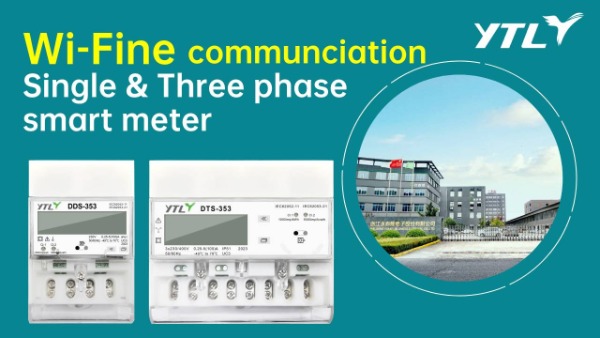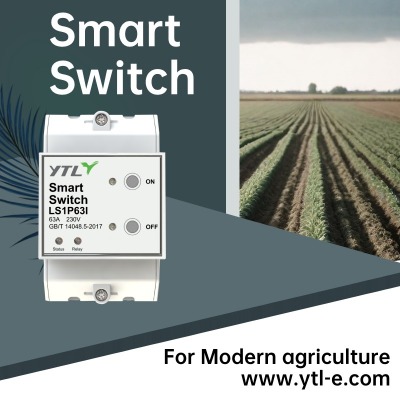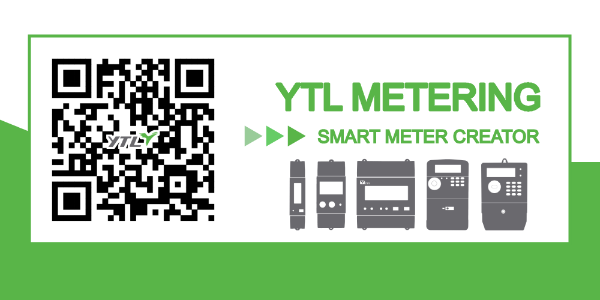How Smart Meters Assist Intelligent Agriculture
The Smart Electricity Meter plays a significant role in assisting smart agriculture by providing real-time monitoring and analysis of farm electricity usage, precise agricultural management, automation and mechanical assistance, artificial intelligence and data analysis, and sustainable and environmental development.

1. Real-time Data Monitoring and Analysis
The Smart Electricity Meter can monitor and analyze farm electricity usage in real-time, providing farmers with detailed data on electricity consumption. Through the meter, farmers can understand the different electricity usage patterns of different fields, different crops, and identify excessive usage issues, allowing them to take timely measures to reduce electricity costs. For example, during irrigation, the meter can automatically control the irrigation equipment based on soil moisture and crop water requirements, achieving precision irrigation and reducing electricity consumption.
2. Precise Agricultural Management
By combining the Smart Electricity Meter with geographic information systems (GIS) and global positioning system (GPS), farmers can achieve precise agricultural management. The meter provides real-time data on farm fields, which can be combined with GIS and GPS technology to enable precise fertilization, irrigation, and sowing operations. This precise agricultural management not only increases yields but also reduces environmental impact, promoting sustainable agriculture development.

3. Automation and Mechanical Assistance
The Smart Electricity Meter can be used in conjunction with automation equipment and machinery to improve agricultural production. For example, during irrigation, the meter can control irrigation equipment operation to achieve automated irrigation; during sowing and fertilization, the meter can work with autonomous tractors to achieve precise sowing and fertilization. This automation and mechanical assistance not only increases efficiency but also reduces labor costs, improving agricultural production economic benefits.
4. Artificial Intelligence and Data Analysis
The data collected by the Smart Electricity Meter can be analyzed using artificial intelligence technology to predict future farm electricity demand and load situations, providing farmers with a basis for rational planning. Additionally, artificial intelligence can analyze crop growth conditions and meteorological data to provide farmers with scientific planting advice, helping them improve yields and quality.
5. Sustainability and Environmental Protection
The application of Smart Electricity Meters helps promote sustainable agriculture development. By monitoring farm electricity usage in real-time, farmers can optimize power consumption, reducing waste and pollution. The meter also enables integration with renewable energy devices (such as solar power systems), providing clean and sustainable energy support for farms, reducing environmental impact.
The application of Smart Electricity Meters in smart agriculture has broad prospects and potential. Through real-time monitoring and analysis of farm electricity usage, precise agricultural management, automation and mechanical assistance, artificial intelligence and data analysis, as well as sustainable and environmental development, Smart Electricity Meters can bring numerous benefits to agricultural production. As technology continues to evolve and improve, Smart Electricity Meters will play an increasingly important role in smart agriculture.


Comments
Post a Comment